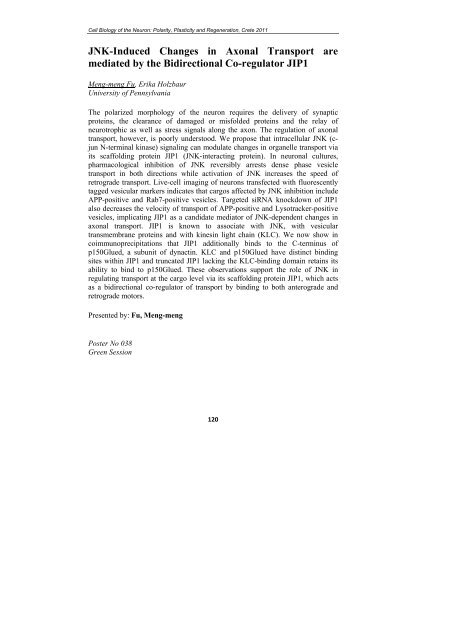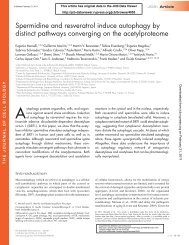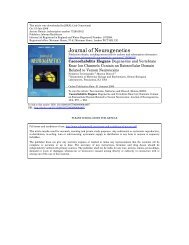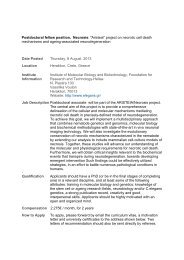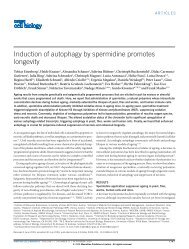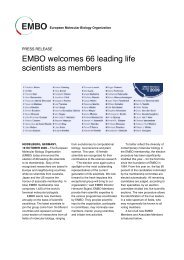CELL BIOLOGY OF THE NEURON Polarity ... - Tavernarakis Lab
CELL BIOLOGY OF THE NEURON Polarity ... - Tavernarakis Lab
CELL BIOLOGY OF THE NEURON Polarity ... - Tavernarakis Lab
You also want an ePaper? Increase the reach of your titles
YUMPU automatically turns print PDFs into web optimized ePapers that Google loves.
Cell Biology of the Neuron: <strong>Polarity</strong>, Plasticity and Regeneration, Crete 2011<br />
JNK-Induced Changes in Axonal Transport are<br />
mediated by the Bidirectional Co-regulator JIP1<br />
Meng-meng Fu, Erika Holzbaur<br />
University of Pennsylvania<br />
The polarized morphology of the neuron requires the delivery of synaptic<br />
proteins, the clearance of damaged or misfolded proteins and the relay of<br />
neurotrophic as well as stress signals along the axon. The regulation of axonal<br />
transport, however, is poorly understood. We propose that intracellular JNK (cjun<br />
N-terminal kinase) signaling can modulate changes in organelle transport via<br />
its scaffolding protein JIP1 (JNK-interacting protein). In neuronal cultures,<br />
pharmacological inhibition of JNK reversibly arrests dense phase vesicle<br />
transport in both directions while activation of JNK increases the speed of<br />
retrograde transport. Live-cell imaging of neurons transfected with fluorescently<br />
tagged vesicular markers indicates that cargos affected by JNK inhibition include<br />
APP-positive and Rab7-positive vesicles. Targeted siRNA knockdown of JIP1<br />
also decreases the velocity of transport of APP-positive and Lysotracker-positive<br />
vesicles, implicating JIP1 as a candidate mediator of JNK-dependent changes in<br />
axonal transport. JIP1 is known to associate with JNK, with vesicular<br />
transmembrane proteins and with kinesin light chain (KLC). We now show in<br />
coimmunoprecipitations that JIP1 additionally binds to the C-terminus of<br />
p150Glued, a subunit of dynactin. KLC and p150Glued have distinct binding<br />
sites within JIP1 and truncated JIP1 lacking the KLC-binding domain retains its<br />
ability to bind to p150Glued. These observations support the role of JNK in<br />
regulating transport at the cargo level via its scaffolding protein JIP1, which acts<br />
as a bidirectional co-regulator of transport by binding to both anterograde and<br />
retrograde motors.<br />
Presented by: Fu, Meng-meng<br />
Poster No 038<br />
Green Session<br />
120


